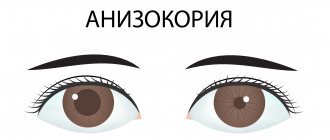Let's start with some facts about depression published on the WHO website.
- Depression is a common mental disorder. WHO estimates that more than 264 million people across all age groups suffer from the disease worldwide.
- Depression is the leading cause of disability in the world.
- Women are more susceptible to depression than men.
- There are effective psychological and drug treatments for depression.
- Each year, approximately 800,000 people around the world between the ages of 15 and 29 die from depression-related suicide. It is the second leading cause of death.
Attention! Only a qualified specialist can make a diagnosis of depression.
Remember the seriousness of the disease
Depression is a disease that negatively affects the emotional, cognitive and physical aspects of a patient's life and can lead to suicidal behavior. Here are some signs that a person is having suicidal thoughts:
- loss of interest in favorite hobbies;
- making a will or attempting to write a suicide note;
- reasoning on the topic of death, the predominance of gloomy, depressive thoughts in speech;
- engaging in creative activities related to death: for example, writing dark poems;
- alcohol and drug use;
- hypothetical or even specific discussions of the suicide process, describing specific details;
- detachment in family matters or at work;
- reticence, reticence.
Rule four: do not react to aggression and negativity
Depressed people can sometimes be angry and aggressive, and if you are nearby, it is likely that the full flow of their indignation will fall on you. Imagine that you are surrounded by an invisible shield against which all offensive words are broken. Remember that it is not the person who says this, but his illness. Depressed people are less likely to discuss their thoughts and feelings. They are sure that no one will understand them, so they reject everyone who tries to help. The best thing you can do is just be there - and talk to the person about neutral topics. If a person mired in depression expresses doubt that a bright future will ever come, you must be ready to reassure him that the sun will definitely come out over the horizon, because it cannot be otherwise. Remember that in a state of depression, people are not able to evaluate themselves and their lives objectively, so no matter what you really think, you don’t need to dump the whole pessimistic forecast on your friend. It's like dipping a person with a sore throat into ice water.
Identify symptoms of depression in a loved one
Experts identify the following symptoms and signs of emerging depression:
- low mood;
- pessimism;
- anger and rage;
- fatigue and anxiety;
- anxiety and insomnia;
- decreased appetite and poor digestion;
- decreased libido and refusal of sexual activity;
- obsessive behavior or persistent bad habits (alcoholism, drug addiction, gambling addiction, gambling addiction);
- irritability towards others, especially children;
- hidden depression is a special type of depression in which some symptoms will work in the opposite direction, for example, increased appetite leading to overeating, sleeping too much.
Be attentive during conversations and find out:
- whether the person voices suicidal thoughts;
- at what period did he/she first feel depressed;
- find out what topics, memories, things and words cause negativity and depression in a person;
- Find out which topics evoke positive emotions.
Depression is treatable. If you think you are suffering from depression, seek professional help!
Medical assistance when feeling unwell
Such a psychological state cannot be ignored. A patient consumed by negative experiences and poor morale runs the risk of going very far, even to the point of attempting suicide. First aid for depression involves contacting a specialist who deals with psychological problems if the patient experiences disturbances in sleep patterns, lack of desire to act, constant drowsiness, and so on.
From the editor: Central nervous system disorders in childrenClinical depression is not only an external manifestation of life problems. This pathological condition is mainly a consequence of the course of complex biochemical processes in the structure of the brain. For this reason, the disease is often treated with tablets and various other pharmaceuticals belonging to the class of antipsychotics, antioxidants, hormonal agents, vitamin complexes, and tranquilizers. All these medications are designed to improve metabolic processes in the brain, which should have a positive effect on its functioning and the elimination of depressive disorders.
Support from a loved one
Below are tips for supporting a loved one struggling with depression.
- Go for walks more often with a person suffering from depression. Fresh air and sunlight will help improve your body tone, improve your mood and give you vigor.
- Watch positive content together: movies, cartoons, documentaries and travel programs.
- Together or separately, start studying literature on depression and ways to overcome it.
- Encourage a person to be active: not only walks, but also household chores, work, hobbies, and various interests.
- Apply a cognitive behavioral approach. Its purpose is to dispel melancholy, which can develop into complex symptoms of depression, and also to distract from everyday activities that lead to stress and negative thoughts:
- Arrange a vacation together: go to the cinema to watch a positive film, read a novel by your loved one’s favorite writer, go to the theater, to a sporting event, or go to a cafe. Buy new outfits or nice souvenirs that a person associates with warm memories.
- Do some manual labor together. For example, do some general cleaning, minor repairs, and if you have a garden or vegetable garden, then it’s time to improve it. The feeling of successfully completing a task helps get rid of melancholy. The main thing is that the process is accompanied by positive emotions. You can include music, dancing and food breaks.
- Play sports. For example, jogging together or training on a street area is easy, free and good for health, including psychological health. A person will tense his body and be able to let go of negative thoughts. Music or a pleasant conversation during breaks will add positivity.
- Create a healthy diet for your loved one. Modern scientists are increasingly connecting the emotional state with human nutrition. They make the following recommendations for diet planning:
- Breakfast should include cereals, fruits and low-fat dairy products:
- eat 5-6 times a day in small portions;
- fat in the daily diet should not be more than 25%;
- add bananas, chicken fillet, salmon, potatoes and other foods rich in carbohydrates and vitamin B to your diet;
- You should drink at least six standard glasses of water every day.
- Don't forget about yourself. You can't take care of a loved one struggling with depression if you undermine your own health. Without taking care of yourself, you can catch this disease yourself - depression. Therefore, psychologists recommend:
- call the helpline - they will help you not only with useful information, but also just listen;
- engage in self-education - read not only fiction, but also study works on depression;
- keep a diary - write down not only your thoughts, but also the results of the work done;
- maintain human relationships - communicate not only with depressed loved ones, but also with friends, colleagues, relatives;
- maintain your usual daily routine - then you will be in good shape;
- do not give up your hobbies - everyone needs a charge of positive energy;
- try to rest as much as your body requires - breaks are needed if you can maintain your daily routine;
- Remember about your state of health - not only physical diagnosis is important, but also psychological.
Rule one: do not analyze his behavior and do not give life advice
The last thing your loved one needs is for you to explore the reasons behind their depression and suggest ways to solve the “problem.” He needs support and understanding. Therefore, recognize his right to grieve, be sad, and experience all other negative feelings. And there is no need to prove that the world is beautiful and there is absolutely no reason to be sad. A person who is experiencing symptoms of depression would be happy to return to normal, but in his condition it is difficult to believe that life will ever sparkle with all its colors again. And the more often you repeat that there is no reason to be upset, that there are people who are worse off now, the deeper the sufferer will plunge into the abyss of his already unhappy thoughts. “But it’s true, some people don’t have money, children ask for food - but there’s nothing to give them, and I’m sitting in my apartment with a refrigerator full of food and can’t move - I’m a loser.” Instead of saying: “There is no reason to be sad,” it is better to say: “Everything will be fine!” Depressed people feel that no other human being can understand what they are feeling. They feel lonely and believe that no one cares about them. Therefore, it will be very helpful if you make it clear that you are nearby. Say these simple words: “I’m here if you need anything,” and a person will know that someone in this world still cares about him.
As a result
Let's repeat the most important points:
- depression is a disease and must be treated;
- you cannot ignore the condition of your loved one;
- if the symptoms listed in the article continue for more than two weeks, you should urgently consult a specialist;
- If possible, follow the recommendations listed in the article;
- Depression, like any other disease, has stages of remission or complete recovery - in no case should you give in to despair, you must maintain a positive attitude.
Rule two: focus on the positive
A person who is overcome by depression tends not to notice his successes, focusing on failures. It seems to him that everything he did in this life was wrong, at the wrong time, and it would be better if he did nothing at all. In moments of depression, people lose trust in the world around them and faith in themselves. But the vicious circle is that without confidence that you have the strength to overcome depression, it is very difficult to cope with it. Therefore, since a person cannot fight for himself, you must help him. Remember that he once did something right and good. Remind me of the story of how he won a corporate darts tournament, or how he defended his secretary from the attacks of an unfair boss. Tell us how proud you were of him when you found out that he was the first in his family to graduate from college. There are victories - even small ones - in the history of each of us. Your task is to discover them and show them to your friend. If you absolutely cannot remember a single story that would inspire confidence in your strength, you can simply say: “I know that you are great.” These words will give a person hope that someday he will be able to meet your expectations, become what you see him, and maybe even better. Don't expect your depression to go away as soon as you say these words. You may need to repeat them over several days. The main thing is that you yourself must believe in what you say.
Drug treatment
Today, doctors have a wide range of medications at their disposal - antidepressants to cope with depression. Some of them are described below. The main thing to understand before starting to use these drugs is that treatment is only possible under the supervision of a doctor.
Selective serotonin reuptake inhibitors (SSRIs)
Most often today, doctors begin treatment for major depressive disorder by prescribing these medications. Drugs in this class are the safest and cause fewer side effects than other types of antidepressants. SSRIs include fluoxetine (Prozac), paroxetine (Paxil), sertraline (Zoloft, Stimuloton), citalopram (Cipramil), and escitalopram (Cipralex).
Serotonin and norepinephrine reuptake inhibitors (SNRIs)
These drugs are duloxetine (Cymbalta), venlafaxine (Effexor XR, Velfax), desvenlafaxine (Pristiq) and levomilnacipran (Ixel, Fetzima).
Norepinephrine and dopamine reuptake inhibitors (NDRIs)
Bupropion (Wellbutrin, Aplenzin, Forfivo XL) falls into this category. This is one of the few antidepressants that are not characterized by side effects in the sexual sphere.
Atypical antidepressants
These medications do not belong to any other class. Trazodone (Trittico) and mirtazapine (Remeron) are sedating and are usually taken in the evening or before bed. Newer medications include vortioxetine (Brintellix) and vilazodone (Viibrid). Vilazodone, as practice has shown, has a much lower risk of side effects in the sexual sphere compared to other antidepressants.
From the editor: Basic principles and exercises for developing visual memory
Tricyclic antidepressants
Medicines such as imizin (Tofranil), nortriptyline (Pamelor), amitriptyline, doxepin, trimipramine (Surmontil), desipramine (Norpramin) and protriptyline (Vivaktil) can be very effective in treating major depressive disorder, but tend to cause more serious symptoms than New generation antidepressants, side effects. It is not recommended to start taking tricyclics unless you have first tried treatment with SSRI drugs.
Monoamine oxidase inhibitors (MAOIs)
MAOIs such as tranylcryptomine (Parnate), phenelzine (Nardil) and isocrboxazid (Marplan) are usually prescribed when other drugs have not been effective. This is done because medications in this group can cause serious side effects. Taking MAOIs requires a strict diet due to dangerous (often fatal) interactions with certain foods? such as certain types of cheese, pickles and wines? and certain medications, including birth control, vasoconstrictors (such as common cold medicine), and certain herbal supplements and spices. The fewest side effects of all drugs in this class are caused by Selegiline (Deprenil, Cognitiv) - one of the latest developments by scientists, when used in the form of a skin patch
It is important to remember that MAOIs should never be used concomitantly with other types of antidepressants. There should be 2-3 weeks between stopping MAOIs and starting a different class of medication (as well as vice versa).
Other medicines
When treating depression, the treatment structure may include other medications in addition to an antidepressant. This is usually done with the aim of obtaining or enhancing the antidepressant effect, which without such a combination is clearly insufficient. Your doctor may recommend combining two antidepressants, or adding other medications such as mood stabilizers or antipsychotics. Sometimes tranquilizers or psychostimulants can be added to the treatment structure for some time.










